You booked a “massage relaxant” in Paris and now you’re second-guessing it. Is it just a fancy name for Swedish? Will it fix that stubborn knot in your shoulder, or is it more candles-and-calm than muscle rescue? You’ll get a straight answer here, with zero fluff. Expect practical tips, Paris pricing you can actually use, and a simple way to choose the right style for your body and your day.
Key Points - Quick Takeaways
- massage relaxant (French for relaxation massage) focuses on calming your nervous system with gentle to medium pressure and slow, flowing strokes.
- It’s not designed to break up deep knots; for that, pick deep tissue or sports massage. For stretch-heavy work, go Thai.
- In Paris, a relaxant session usually costs €70-€110 for 60 minutes at mid-range salons; luxury hotel spas run €150-€220.
- If you want to sleep better, lower stress, or reset after a long week (or long flight), relaxant is perfect. For injury recovery, see a licensed physiotherapist (masseur-kinésithérapeute).
- Book with clear intentions: stress relief vs. pain relief. Tell your therapist what you want up front-pressure, areas to avoid, and any health issues.
Direct Answer - What Makes a Massage Relaxant Different?
Massage relaxant is built for deep calm, not deep pressure. Think gentle-to-moderate pressure, long strokes, warm oil, steady rhythm, soft music-the full wind-down experience. It aims to downshift your nervous system from “go-go-go” to “rest-and-digest.”
Other common massages have different goals. Deep tissue targets adhesions and tight fascia with slower, heavier pressure. Sports massage prepares or recovers muscles around events and training. Thai uses stretches and compressions done on a mat, no oil, clothes on. Lymphatic drainage is feather-light to support swelling reduction. Different tools, different results.
If your top goal is stress relief, sleep, and mood, choose relaxant. If you need focused release or you’re training hard, pick deep tissue or sports. If you love yoga-like stretching, Thai is your match.
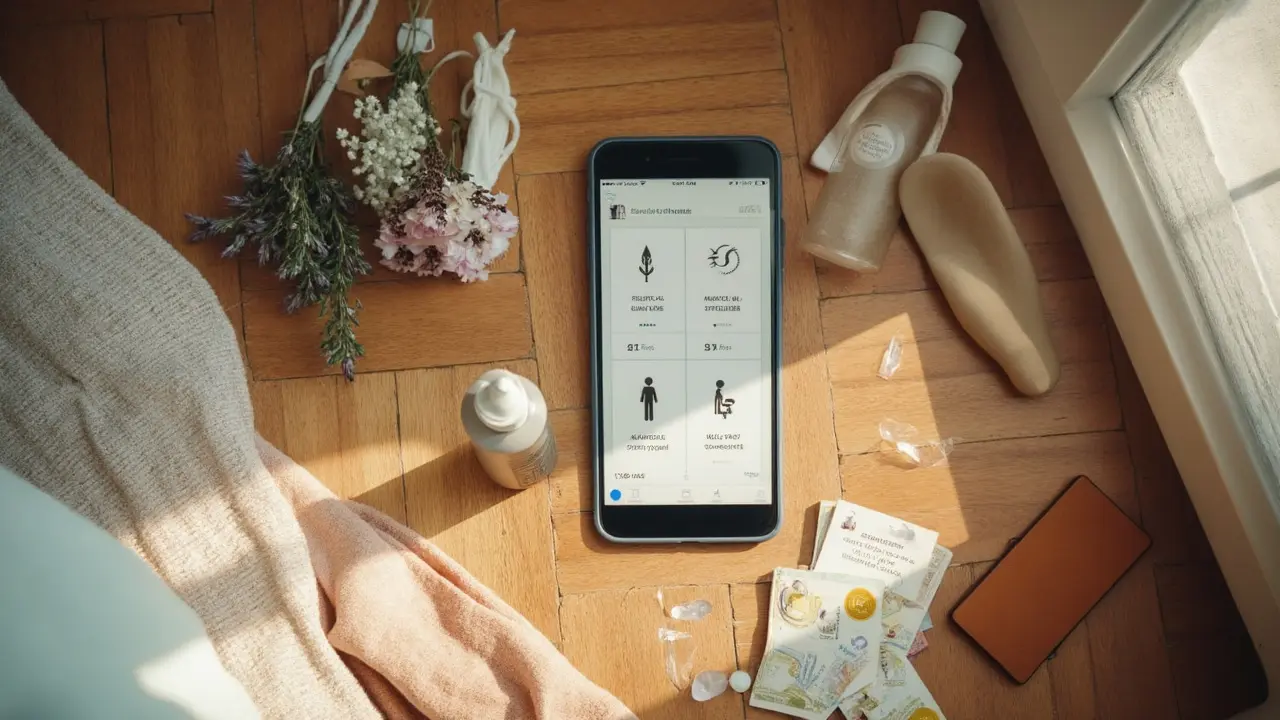
Comprehensive Guide to Massage Relaxant in Paris
Let’s set the context first. In France, “massage bien-être” (well-being massage) is non-medical and done by trained practitioners in spas or salons. Medical or rehabilitative massage is handled by licensed physiotherapists (masseurs-kinésithérapeutes). So a “massage relaxant” sits squarely in the well-being camp-amazing for stress and comfort, not a substitute for medical care.
What it feels like: warm oil, slow rhythm, light-to-medium pressure, long gliding strokes (effleurage), kneading (pétrissage), maybe gentle stretches. Your body eases down. Your mind follows. You walk out looser, warmer, and a little floaty.
How it compares to popular styles you’ll find across Paris-from Saint-Germain-des-Prés to Le Marais, Opéra, Bastille, and Montmartre:
- Swedish: The classic, with long strokes and kneading. In Paris, many “relaxant” sessions are Swedish-inspired. Relaxant leans even more into slow rhythm and full-body soothing.
- Deep Tissue: Slow, heavy pressure to target knots and fascia. Great for stubborn tension, not ideal if you want to nap on the table.
- Sports: Targeted work pre- or post-event, with mobility drills. More functional, less candlelit spa vibe.
- Thai: Done on a mat with clothes on. Assisted stretches and rhythmic pressure. Energizing and mobility-friendly.
- Shiatsu: Finger and palm pressure along meridians. Clothes on, no oil. Grounding and focused.
- Lomi Lomi: Hawaiian flow with long, sweeping forearm strokes. Deep relaxation through fluid movement.
- Hot Stone: Heated stones melt tension with gentle pressure. Pairs beautifully with relaxant for stress relief.
- Lymphatic Drainage: Ultra-light strokes to support edema, post-flight puffiness, or post-op (with clearance).
- Prenatal: Side-lying cushions, safe positioning, and gentle pressure tailored to trimester changes.
Evidence check, because your body deserves more than hype:
“Massage therapy can help reduce pain and anxiety and is generally safe when performed by trained professionals.” - National Center for Complementary and Integrative Health (NIH), 2023
Clinical bodies, including the American College of Physicians (2017 guideline), list massage among non-drug options for low back pain. That doesn’t make every massage medical treatment-but it does support its role in comfort, function, and stress reduction.
Paris-specific tip: if you want a truly quiet session, avoid peak spa hours (Fridays 5-8 pm, Saturdays mid-afternoon). Late-morning weekday slots are usually calmer and sometimes cheaper.
Here’s a side-by-side to make choices easy:
| Modality | Primary Goal | Pressure | Techniques | Best For | Typical Duration (Paris) | Price Range in Paris (EUR, 2025) |
|---|---|---|---|---|---|---|
| Massage Relaxant | Stress relief, sleep, nervous system calm | Light-medium | Long strokes, gentle kneading, warm oil | Overwhelm, jet lag, general tension | 60-90 mins | €70-€110 mid-range; €150-€220 luxury |
| Swedish | General relaxation + light muscle relief | Light-medium | Effleurage, pétrissage, friction | First-timers, full-body reset | 60-90 mins | €65-€100 mid-range |
| Deep Tissue | Release knots, fascia, chronic tightness | Medium-deep (focused) | Slow deep strokes, trigger point work | Desk neck, long-term tight spots | 60-75 mins | €80-€130 mid-range; €160-€230 luxury |
| Sports | Performance, recovery, specific areas | Medium-deep | Friction, stretching, mobilization | Runners, lifters, cyclists | 45-60 mins | €75-€130 |
| Thai | Mobility, stretch, energy | Variable (no oil) | Compression, assisted stretching | People who like yoga or active work | 60-90 mins | €60-€110 |
| Lymphatic Drainage | Reduce swelling, support circulation | Very light | Feather-light strokes, precise sequence | Edema, post-flight, post-op (with clearance) | 45-60 mins | €70-€120 |
Rule of thumb: if you want to feel calm and floaty after, choose relaxant. If you want to feel “worked on,” choose deep tissue or sports. If you want to feel longer and looser, choose Thai.
How to Choose, Book, and What to Expect (Paris Edition)
Start with your job-to-be-done. What problem are you hiring this massage to solve?
- Stress, poor sleep, sensory overload → Relaxant or hot stone.
- One angry knot or recurring tight spot → Deep tissue (ask for focused work).
- Training cycle or race coming up → Sports massage.
- Stiff hips and back, love stretching → Thai.
- Swelling, puffiness → Lymphatic drainage (get medical guidance if post-op).
- Pregnant → Prenatal with a trained practitioner.
How to find great services in Paris:
- Search smart: try “massage bien-être Paris,” “massage relaxant Le Marais,” “deep tissue Opéra,” or “Thai massage Bastille.”
- Check legitimacy: in France, non-medical massage is “bien-être.” Medical/rehab is for physiotherapists. Look for insurance mention (assurance RC Pro) and clear service descriptions.
- Read reviews: filter for comments on pressure, cleanliness, noise levels, and how the therapist listens.
- Scan the menu: clear durations and prices, add-ons like aromatherapy or hot stones, and cancellation policy.
- Ask one question before booking: “I want X result-what style and pressure do you recommend?” Good therapists answer plainly.
What to expect during a massage relaxant session:
- Arrival: you’ll fill a short intake (allergies, injuries, preferences). Arrive 10 minutes early to avoid rushing.
- Consult: say what matters-sleep, anxiety, travel fatigue, or just a mental reset. Mention areas you want skipped.
- Setup: you’ll undress to comfort level, lie under a sheet/towel. Therapist only uncovers the area being worked.
- Flow: slow, continuous strokes, warm oil, even pressure, soothing music. Expect a steady, unhurried pace.
- After: you’ll get a minute to reorient, water, and aftercare tips. Move slowly-spa brain is real.
Pricing and booking cues for 2025 (Paris):
- Mid-range salons: €70-€110 for 60 mins; €95-€150 for 90 mins.
- Hotel spas (Saint-Germain, Opéra, Champs-Élysées): €150-€220 for 60 mins.
- Specialized modalities (lymphatic, prenatal): typically +€10-€20.
- Tipping: not required in France; 5-10% is a kind thank-you if service exceeded expectations.
- Peak times (Fri-Sun afternoons/evenings) book out. Weekday late morning often has better availability and quieter rooms.
Safety tips you’ll be glad you knew:
- Health flags: active fever, infectious skin issues, DVT history, recent fractures, uncontrolled hypertension-avoid or get medical clearance.
- Pregnancy: book prenatal only, especially after first trimester, with a practitioner trained for it.
- Cancer, post-op, lymphedema: ask your medical team which massage types and pressures are safe for you.
- Skin and scent: if you’re sensitive, request unscented oil or hypoallergenic lotion. Quick patch test helps.
- Speaking up: numbness, sharp pain, or discomfort is a stop sign. Ask for less pressure or a different approach.
- Boundaries: your comfort matters. Professional therapists explain draping, ask consent for pressure and areas, and respect no-go zones.
Quick decision tree (simple and honest):
- If your main goal is calm → Relaxant. Want extra melt? Add hot stones.
- If you need a knot gone → Deep tissue on the area, plus 30-45 minutes of relaxant to settle the nervous system.
- If you crave stretch → Thai or a hybrid massage with assisted stretching.
- If you’re training → Sports massage 48-72 hours before a big effort or 24-48 hours after.
- If you’re swollen after flight → Lymphatic drainage + hydration.
- If pregnant → Prenatal only, with proper bolstering and left-side positioning.
My real-life tip from too many red-eye flights into CDG: for jet lag, book a 60-minute relaxant on your first evening in Paris, then a short walk by the Seine. Sleep hits like a gentle wave.
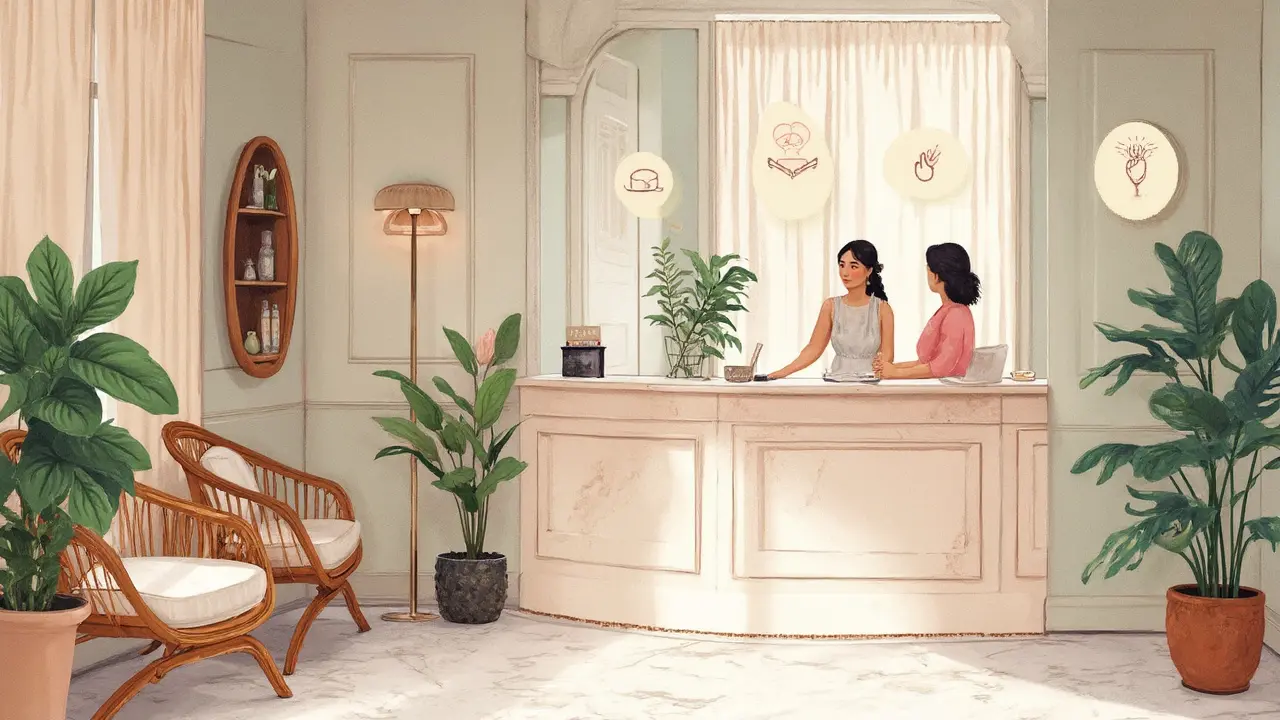
FAQ and Next Steps
FAQ: Your top questions, answered fast.
- Is massage relaxant the same as Swedish? Close cousins. In Paris, “relaxant” often uses Swedish techniques but goes deeper into slow rhythm and nervous-system calm.
- Will a relaxant massage fix my shoulder knot? Not usually. It may soften it a bit, but deep tissue or sports is better for stubborn trigger points.
- How often should I get a relaxant massage? For stress and sleep, every 2-4 weeks works for most. Before a big week, go weekly for a short run (45-60 minutes).
- What do I wear? Undress to your comfort, you’re fully draped except the area being worked. For Thai or Shiatsu, you keep comfy clothes on.
- Any prep? Hydrate, skip heavy meals for 90 minutes before, arrive a bit early, and list your priorities and health notes.
- Post-massage soreness-is that normal? Light soreness can happen, especially after deep tissue. For relaxant, you should feel loose, not beat up. Any sharp pain is not normal-tell the spa.
- Which neighborhood has good options? You’ll find solid choices across Le Marais, Saint-Germain-des-Prés, Opéra, Bastille, Montmartre, and La Défense. Focus on reviews and practitioner bios more than postcode.
Booking checklist (copy this into your notes):
- Goal: stress vs. pain vs. mobility.
- Style: relaxant, deep tissue, sports, Thai, etc.
- Pressure: light/medium/deep and areas to avoid.
- Sensitivities: scents, oils, noise.
- Health: any flags to share.
- Timing: avoid your personal peak stress window if you can.
Red flags when choosing a place:
- Vague service descriptions, no practitioner info, or no clear pricing.
- Pressure pushed beyond your consent or pain brushed off.
- Unhygienic setup: stained linens, cold drafty room, no handwashing seen.
Aftercare you’ll actually do:
- Drink water or herbal tea, not because of “toxins,” but because you likely need hydration.
- Gentle movement: a short walk or easy stretches to let your body integrate the work.
- Sleep: treat tonight like a mini spa retreat-dim lights, warm shower, early bed.
Next steps by persona:
- Stressed traveler: book a 60-minute relaxant near your hotel (Opéra or Saint-Germain have many), ask for light-to-medium pressure.
- Desk warrior with one bad knot: do a 30-minute deep tissue focus + 30-minute relaxant.
- Runner pre-race: keep it light and mobility-focused 48 hours before; do deeper work the week after.
- Pregnant: pick a prenatal specialist; ask about positioning and bolsters.
If something goes off-script:
- Too sore after deep tissue: warm shower, gentle stretching, light movement, plenty of fluids. Next time, ask for less pressure and more warming-up of the tissue.
- Didn’t feel heard: send polite feedback and try another therapist-chemistry matters.
- Skin reaction to oil: switch to hypoallergenic or jojoba next time; do a patch test at the start.
Ready to feel your shoulders drop two inches? Book your session for a quiet weekday morning, tell your therapist exactly what you want, and let Paris handle the rest.

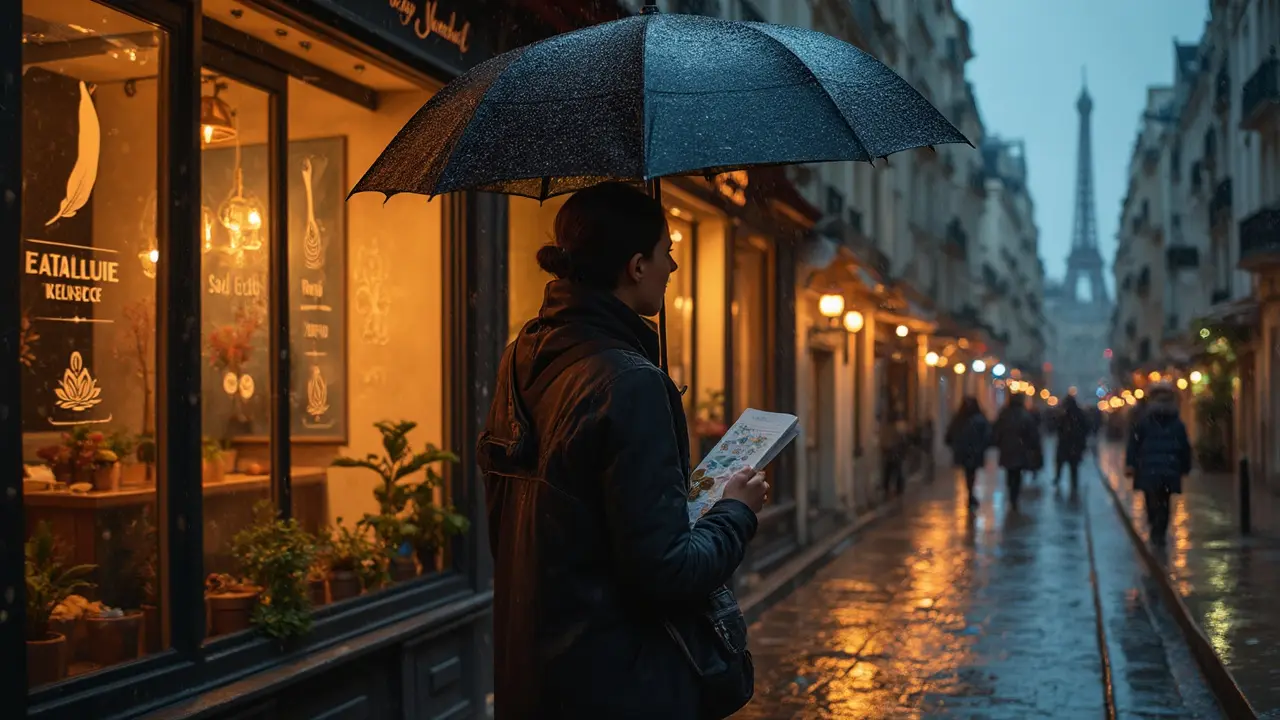
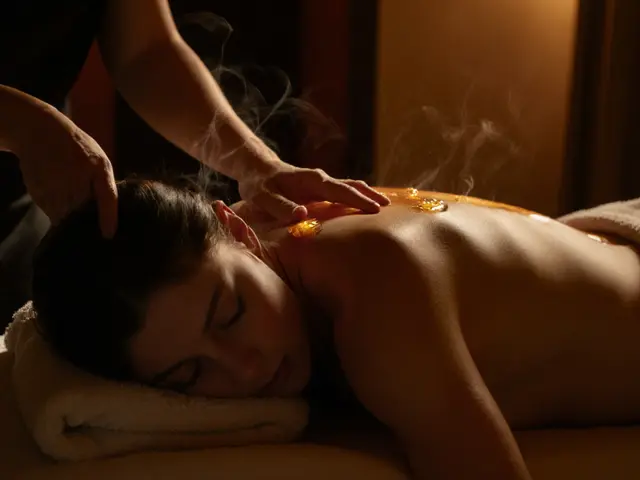
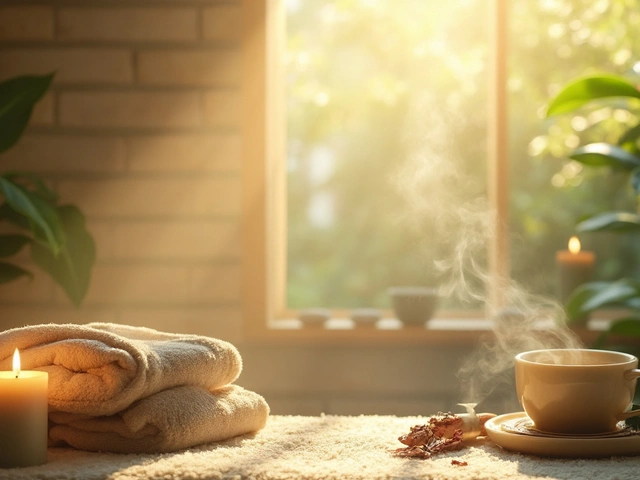
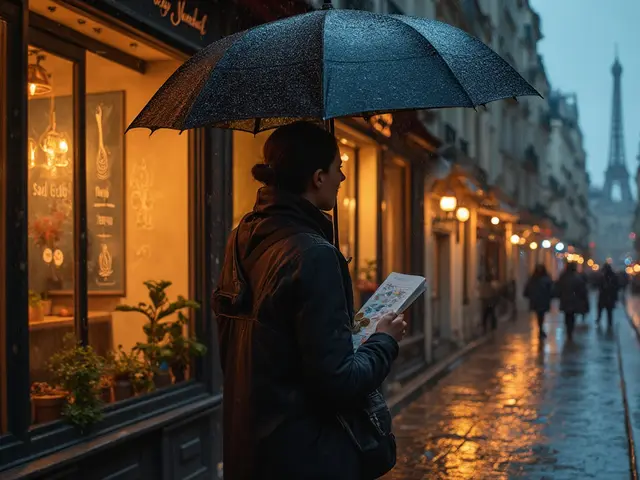


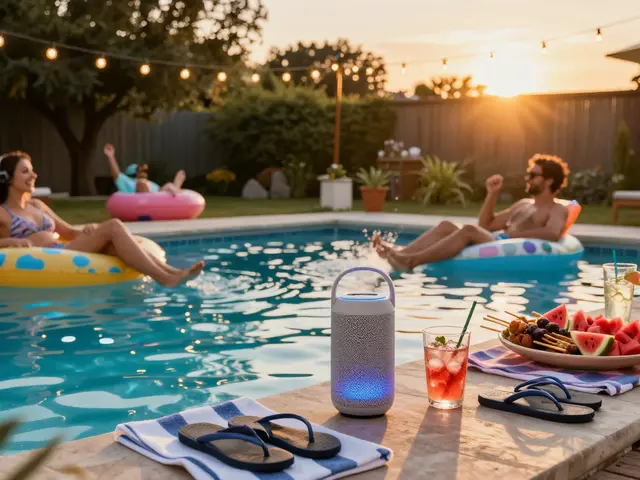
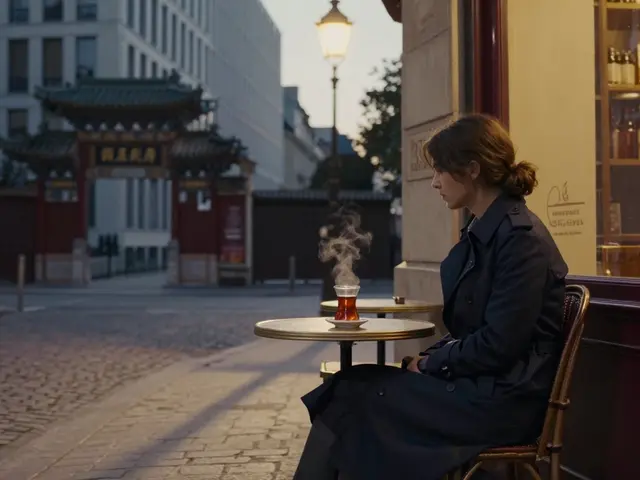
rachel newby
September 2, 2025 AT 14:10If you want to actually unwind after a day of museums and meetings, book the massage relaxant and don't overthink it.
It's built to quiet the nervous system not pulverize fascia, so expect languid strokes, warm oil, and a vibe that makes you slow your breathing down. If your neck is acting up because you sleep weird on a plane, the relaxant will make you feel human again but won't necessarily unknot a chronic trigger point. For that, schedule a focused deep tissue session or a sports therapist who knows trigger point release. Paris places label a lot as “relaxant” but the best ones still ask what you want up front and adjust pressure accordingly. Skip the places that brag about being both spa and clinic without clear staff credentials.
Also be realistic about price and time: a 60 minute relaxant at a decent spot is often enough to reset, but if you want proper attention to a stubborn area, add 30 minutes and ask them to finish light so you don't leave wired.
Tina Nielsen
September 4, 2025 AT 17:33Booked a relaxant in Le Marais last week and it was pure bliss 😊
Brian Opitz
September 7, 2025 AT 01:06Relaxant massages are for recalibration not repair.
Do not expect structural change from a single session.
Expect instead a lowered sympathetic response and a subjective sense of ease.
Repeated sessions produce cumulative effects on stress and sleep
But chronic myofascial issues require targeted interventions such as deep tissue or physiotherapy
These modalities apply sustained pressure to remodel soft tissue adhesions
They also provoke short term soreness that signals mechanical work was actually done
A competent therapist will combine an initial warming phase with focused techniques and conclude with relaxation
Parisian price tiers reflect location and brand more than superior outcomes
Hotel spas charge a premium for ambiance and discretion not necessarily superior technique
Independent practitioners often offer better value and can be more skilled at therapeutic work
Reviews that mention listening and pressure control are more useful than star counts
For post flight fatigue a single relaxant session followed by light movement is efficient
For recurring pain build a plan with frequency and modality adjustments
Finally consent and communication matter more than labels
The therapist who asks what you need and adapts will save you time and money
Frances Chen
September 9, 2025 AT 08:40For anyone thinking about mixing modalities, do it thoughtfully.
A hybrid session with a focused 20 to 30 minute deep work section followed by a full relaxant finish gives you both mechanical release and nervous system downshift. That combo prevents the body from recoiling after aggressive work and helps integrate the change. Mention any sharp sensations immediately and have the therapist slow down rather than power through. If you're jet lagged, push the relaxant portion to the end so you leave calmer and more likely to sleep. Hydration afterward matters less than gentle movement, so plan a short walk afterwards instead of collapsing in a taxi. If you have recent injuries, brief the therapist precisely on dates and treatments so they can avoid contraindicated techniques. Trust but verify credentials for anything advertised as medical recovery. A masseur-kinésithérapeute will be the right call for post-op or serious pain concerns. For general travelers, a monthly relaxant keeps stress markers down and makes sightseeing more pleasant. If you prefer quiet, pick late morning weekday slots and request a quieter room when booking. Hot stones are a nice finishing touch but skip strong scents if you get headaches. Be blunt about areas to avoid and where you want pressure concentrated, and you'll get a far better session. Finally, tipping is optional in France but a small thoughtful gesture is always appreciated when service is honest and attentive.
Dian Edgar
September 11, 2025 AT 16:13Totally agree with the hybrid approach, saved my neck last month.
I always tell them to focus on the knot for 20 mins then mellow out the rest of the time, works like a charm. Also dont be shy about saying "too hard" cause some therapists assume pain = good. Book a spot with good lighting and clean linens, basic but true. Oh and bring flip flops for the locker area, no one likes cold feet in a marble foyer lol
jocelyn richards
September 13, 2025 AT 23:46For the record, relaxant is not an indulgence it's maintenance.
Saying that, people confuse relaxation with incompetence a lot. Good therapists will ask whether you're recovering from injury or just dead tired and will adapt. If the issue is a persistent knot from desk posture, book a targeted session and plan follow ups. If the goal is sleep, schedule it for early evening and keep post-massage activities minimal. Prenatal clients need specially trained practitioners so don't gamble with a regular relaxant if you're pregnant. For lymphatic concerns, insist on a therapist who lists training in manual drainage on their CV. And if you're sensitive to scents test the oil on a small patch first, skin reactions ruin the whole experience. Lastly, don't expect miracles from one treatment but do expect to feel cared for and calmer, and that matters on a trip to Paris.
Nakia Decosta
September 16, 2025 AT 07:20Spot on, and for pregnant people especially, insist on prenatal specifically
Positions and bolsters do matter a lot
Also a little heads up to the therapist about nausea or reflux helps
Sean Jacobs
September 18, 2025 AT 14:53Oils and aromatherapy smell nice but be wary.
There are loads of imported oils with undisclosed additives and traces of heavy metals in some boutique blends. Always ask for the ingredient list or bring your own unscented oil if you're paranoid. Post viral inflammatory reactions to scented products are underreported and it's better to be cautious than sorry. Also watch for overenthusiastic pressure from therapists who equate intensity with expertise. If a place won't show credentials or insurance details that's a red flag. Keep receipts and note any odd reactions to report later if needed.
Mia B&D
September 25, 2025 AT 13:33Totally agree re ingredents, its shocking how often they cant list them.
I once got a rash bc someone used a scented oil and they pretended it was fine, not ok
Chris Hill
September 30, 2025 AT 04:40Practical closing thoughts for anyone still deciding
Think in terms of what you want to get out of the session and work backwards from that goal
If the goal is calm pick relaxant and let the therapist know you value steady rhythm over brute force
If the goal is mechanical change pick deep tissue or a sports session and accept that you may be sore afterwards
Combine modalities when appropriate but ask the therapist to plan the session so the aggressive work happens earlier and the relaxant finish so you leave calm
Book weekday mornings if you value quiet and book earlier in your trip rather than the last night if you want to reset jet lag
Look for clear service descriptions and practitioner bios and avoid menus that are vague or full of buzzwords
Bring water but plan a short walk after rather than sitting still in a taxi to help integration
For pregnancy or recent surgeries get clearance from your medical team and see a trained prenatal or medical therapist
If you have a specific problem keep notes about what helped and what made it worse so you can refine future sessions
Trust your instincts about pressure and comfort and speak up during the session if something feels off
Remember that Paris pricing varies wildly by district and brand but that midrange independents often give the best technical value
Tipping is optional here but a small thank you for above average care is appreciated
Finally, a short relaxant after a long travel day is one of the simplest ways to feel like you actually arrived and started your trip
Keep it simple and clear about outcomes and you'll rarely be disappointed